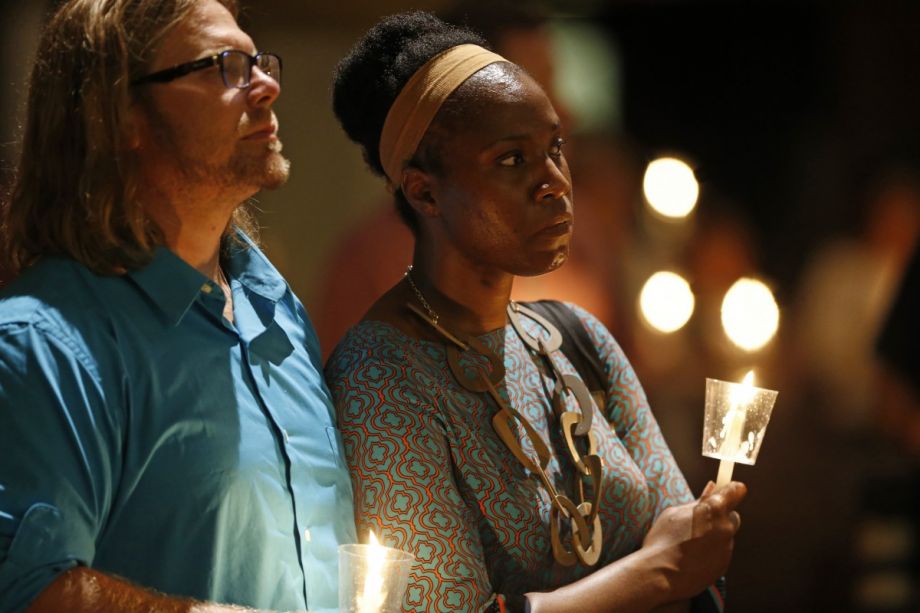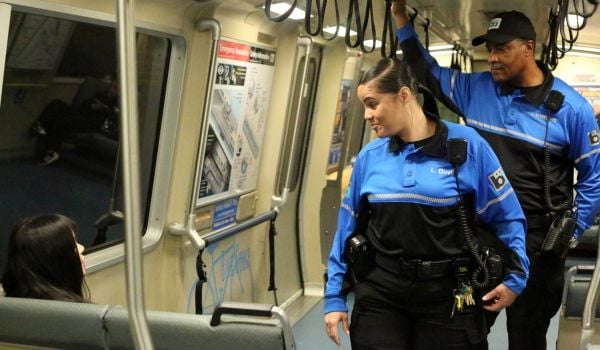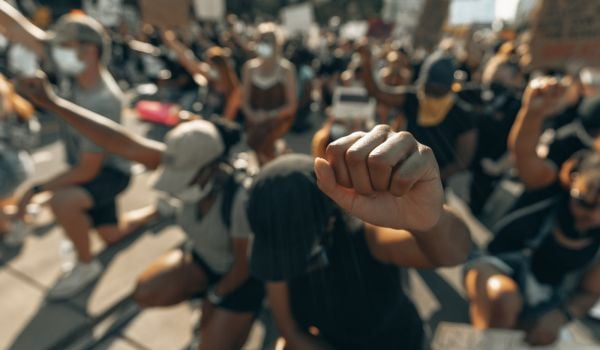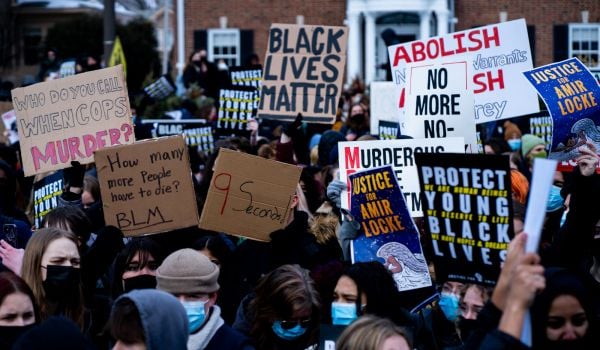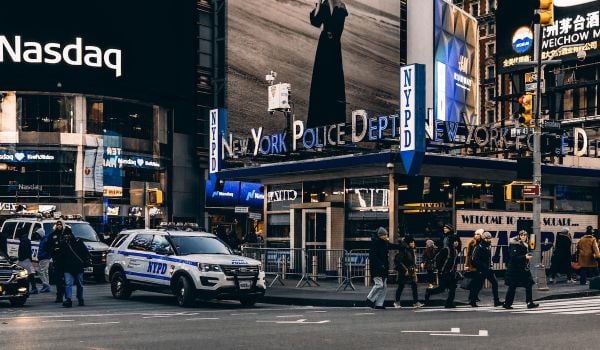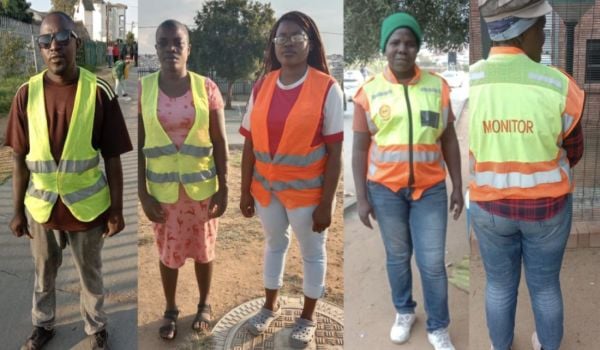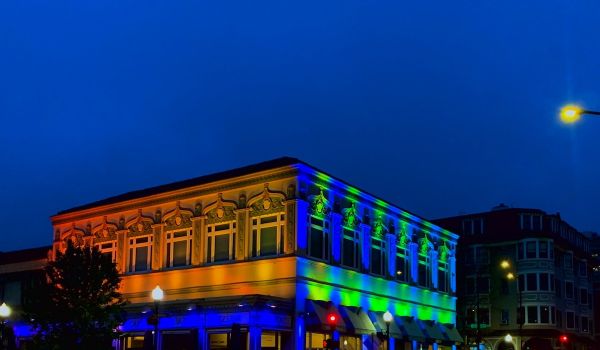When I was 10 years old I stood behind my father, Tesfaie Mokuria, as two Dallas police officers shot and killed him. I watched my mother cradling my baby sister sink to her knees, hold his foot, and wail. I watched as blood began to bubble from his mouth. I watched as the officers were not indicted. My story is part of the Dallas story. It is just one of the hundreds of stories that the city of Dallas has yet to acknowledge as part of our shared history.
It is within this context that over 1,000 Dallasites gathered downtown on July 7. We stood sharing our collective anger, grief and desire for change in the wake of the killings at police hands of Alton Sterling of Baton Rouge and Philando Castile of Minneapolis. With the images from the gut-wrenching videos of their deaths and the voices of their children present in my mind, I led the crowd in Assata Shakur’s chant, “It is our duty to fight for our freedom. It is our duty to win. We must love each other and support each other. We have nothing to lose but our chains.”
Our voices echoed through the city. Then, as the march was ending, the shots came and the peaceful march erupted into chaos. Five police officers were killed. Seven officers were wounded, and two civilians were injured.
This weekend in Baton Rouge, another gunman targeted police and three officers were fatally shot. Both shooters were young U.S. military veterans who appear to have acted alone. The violence has been roundly condemned by the Black Lives Matter movement and other civil rights activists.
Throughout all this, the Dallas skyline has been lit blue with #BacktheBlue and #DallasStrong scrolling across the Omni hotel facade. At the memorial for the slain officers, Police Chief David Brown compared them to superheroes. He urged protesters to “get off that protest line” and join the police force. Mayor Mike Rawlings told CBS news, “I think we’ve demonized our police for too long and we have to stop that. We will always get better but we have to salute them because as we’ve seen, they do die for us.”
But we do ourselves a disservice to deny the history and current reality of policing in America.
As Dallas staggers in grief over America’s latest mass shooting, it is important that we as a city do not attempt to rewrite history. Inequality continues to pervade every aspect of life in Dallas — in the high and growing rates of poverty and homelessness, in substandard and unaffordable housing, in the underfunded, de facto segregated schools — but nowhere is this inequality more pronounced than in policing.
Despite recent reform efforts, the Dallas police department continues to be the greatest untold story of police brutality in America, a 43-year history of unaccountable use of deadly force. Every instance of death by police gunfire in Dallas over the past 43 years — and there have been hundreds — has been found to be justified by police internal affairs, the district attorney and a Dallas County grand jury.
In the words of Harvard Professor Ronald S. Sullivan Jr., “to say that police are under siege in the way communities of color are under siege is downright false. Why do police feel under siege? I think that they feel genuinely under siege because they’ve never been held accountable to communities of color before. There’s a long and unbroken history of law enforcement being able to treat citizens of color in any way they choose with no repercussions whatsoever. Communities of color around the country are now insisting that they be treated equally under the law, and that’s the only fair and right and just thing to do.”
The changes that we need to stop mass shootings by individual gunmen, whether in Dallas, Baton Rouge, Orlando or Sandy Hook, are markedly different than the changes that we need for justice in policing. Police violence in Dallas is an inconvenient truth that — if we confront it honestly — can create meaningful change for the city.
I joined Collette Flanagan and John Fullinwider in founding Mothers Against Police Brutality because my father should have had the right to live through an encounter with police. All Black people need to have the right to live through encounters with police. Mothers Against Police Brutality is part of the movement for Black lives, human rights and dignity. We are determined to change police use of deadly force and to promote justice in policing in Dallas and, working in coalition with others, throughout the country. We are part of the Dallas story. We are the part where the story changes.
This is a moment of both peril and promise. There is an opportunity in this moment. The great Persian poet Jalal al-Din Rumi said, “The wound is the place where the Light enters you.” The question is: Will Dallas, Baton Rouge and this country let the light shine in?
Sara Mokuria is a co-founder of Mothers Against Police Brutality. She is a sought after educator, community organizer, project manager, and facilitator. Mokuria is a Dallas native and is committed to helping her city become a beacon of racial and economic justice. Mokuria works as the Associate Director for Leadership Initiatives with The Institute for Urban Policy Research at the University of Texas at Dallas, where she brings high-level experience in project management, program design and community engagement, combined with lifelong passions for justice, equity and arts and culture.

